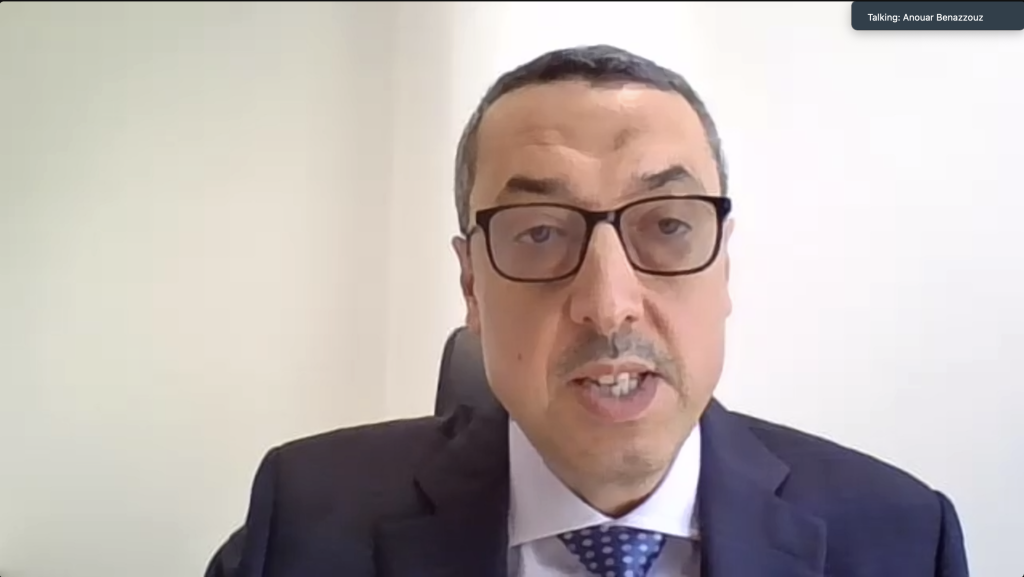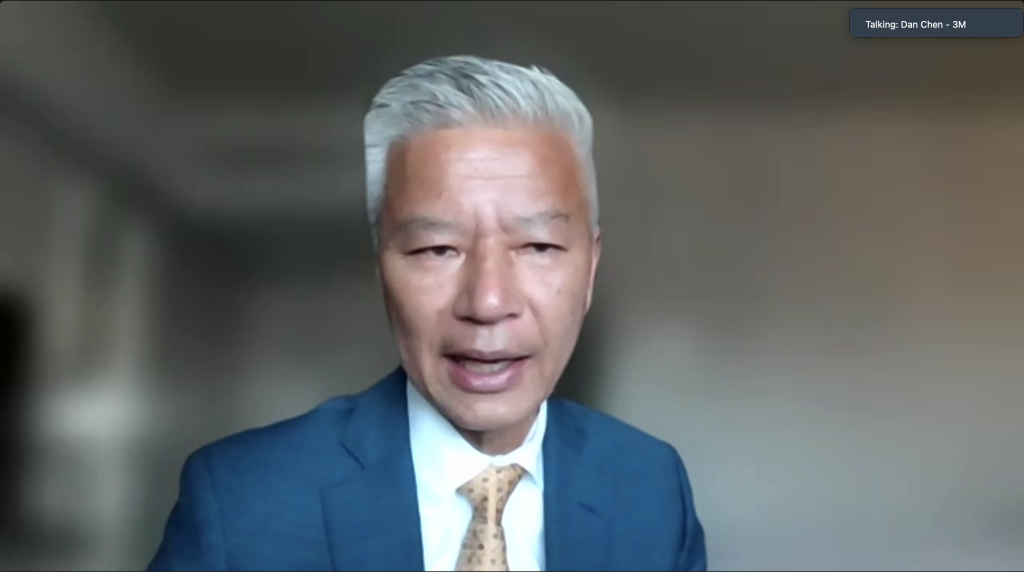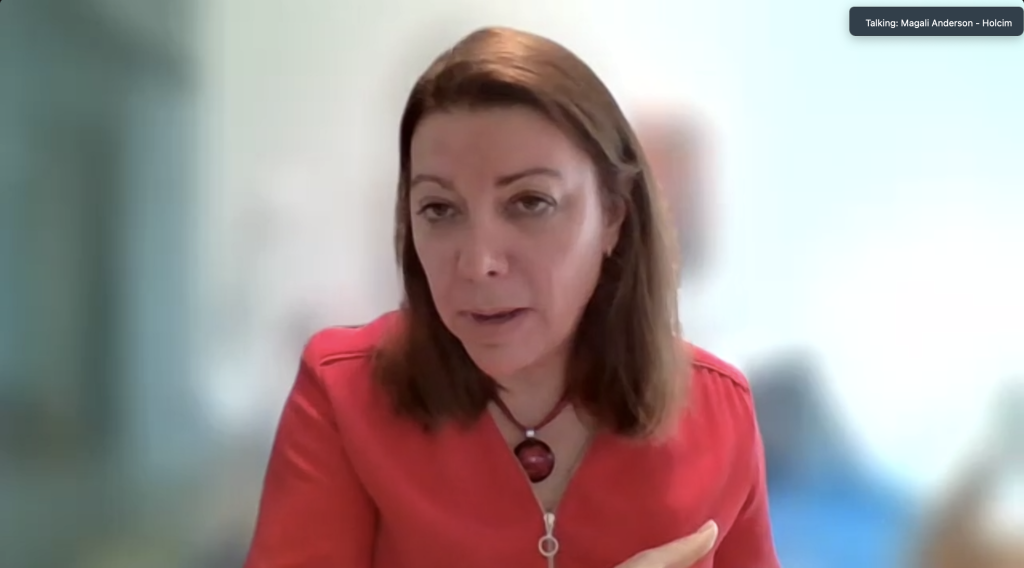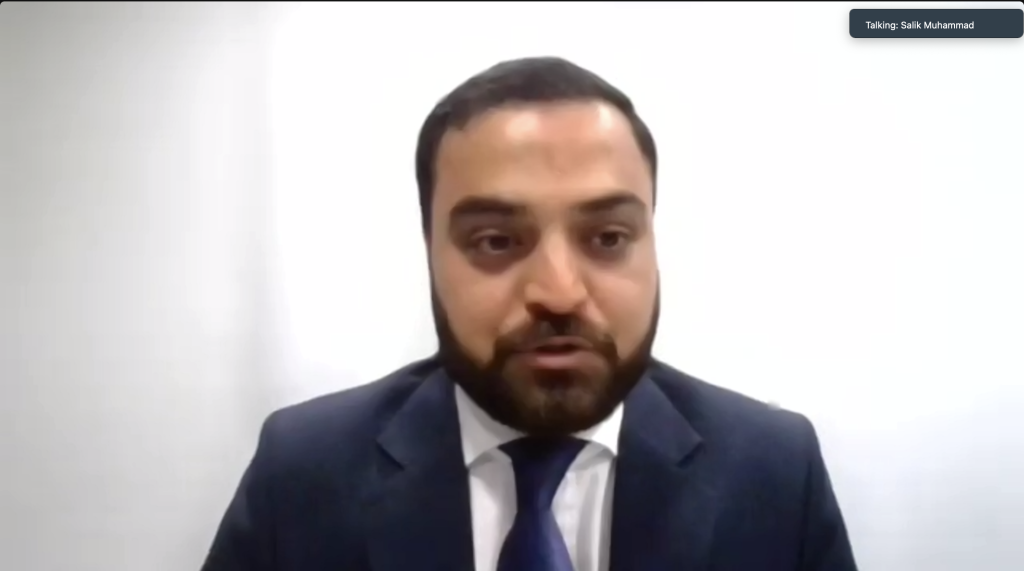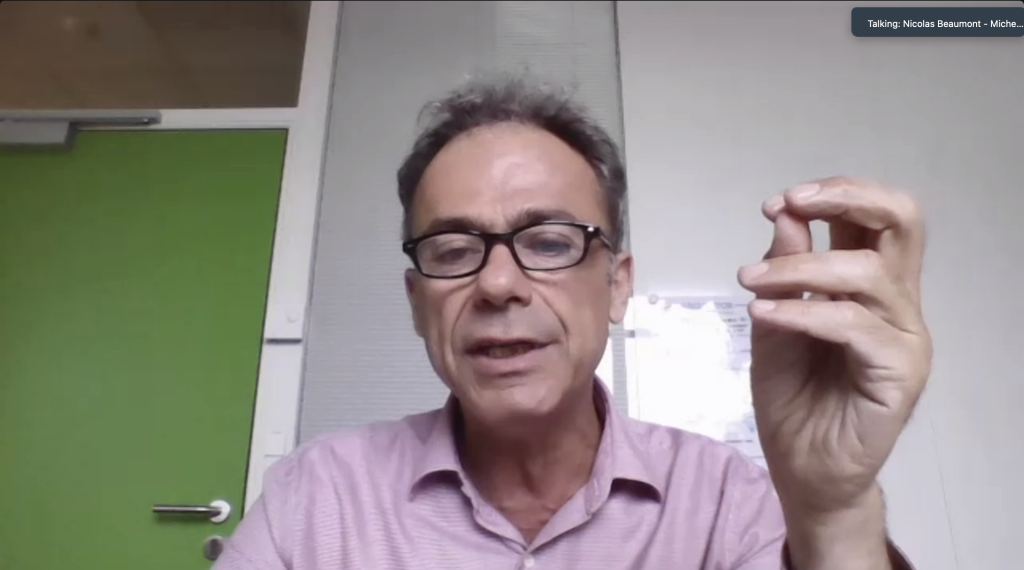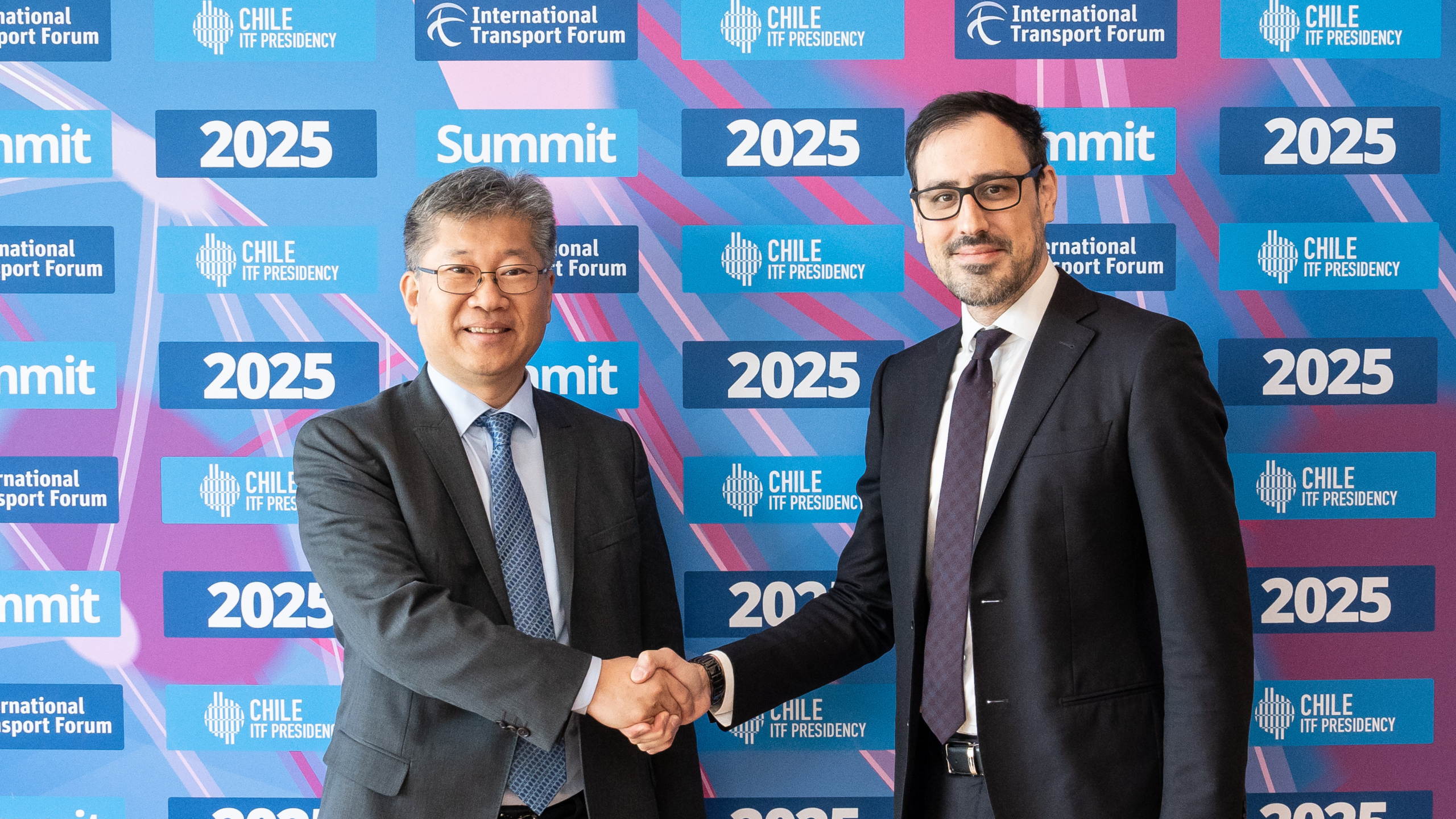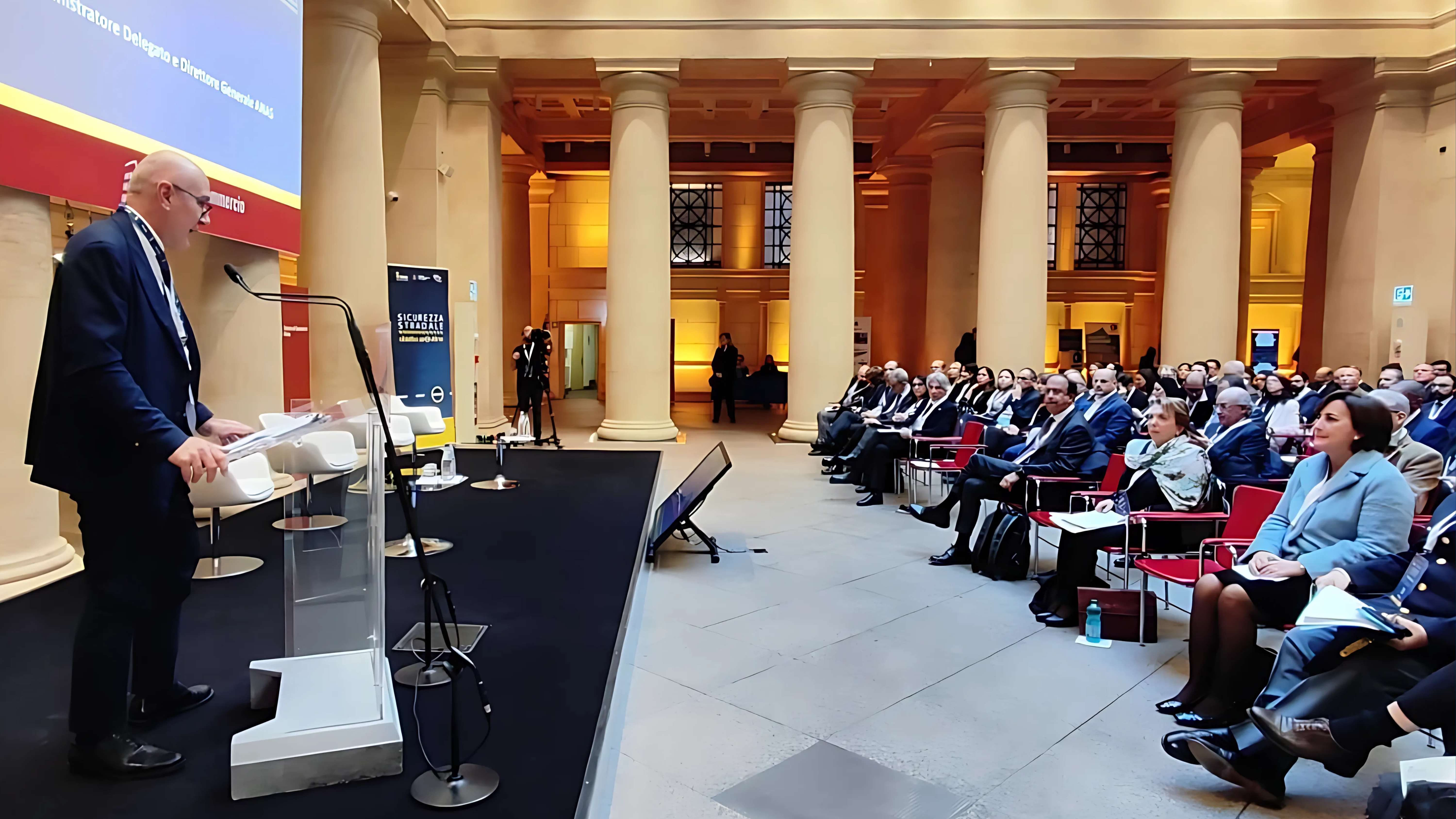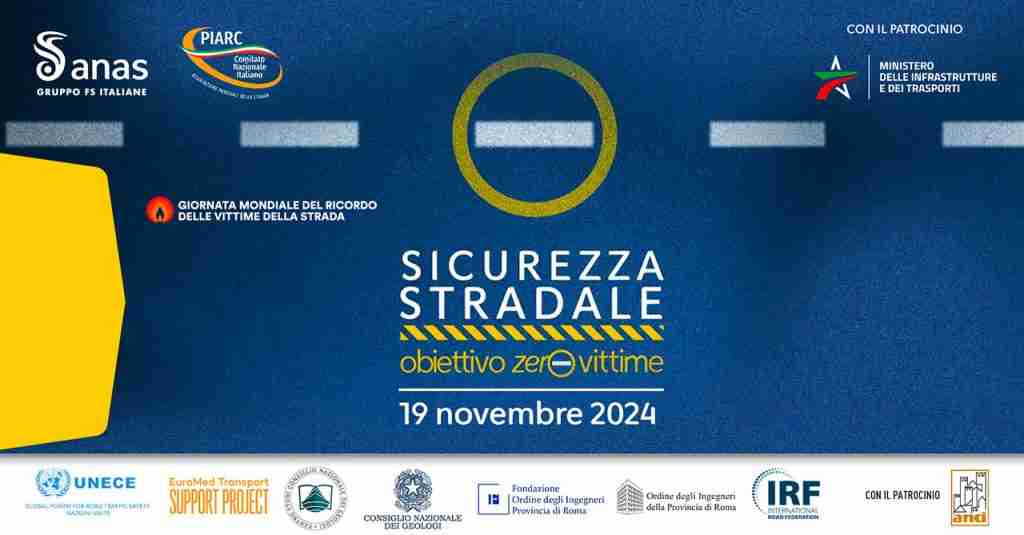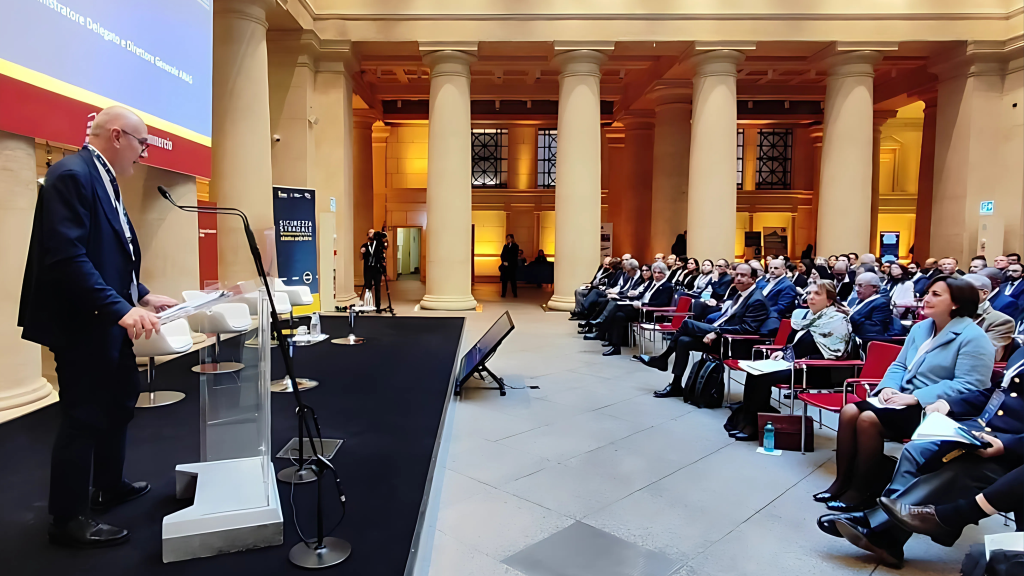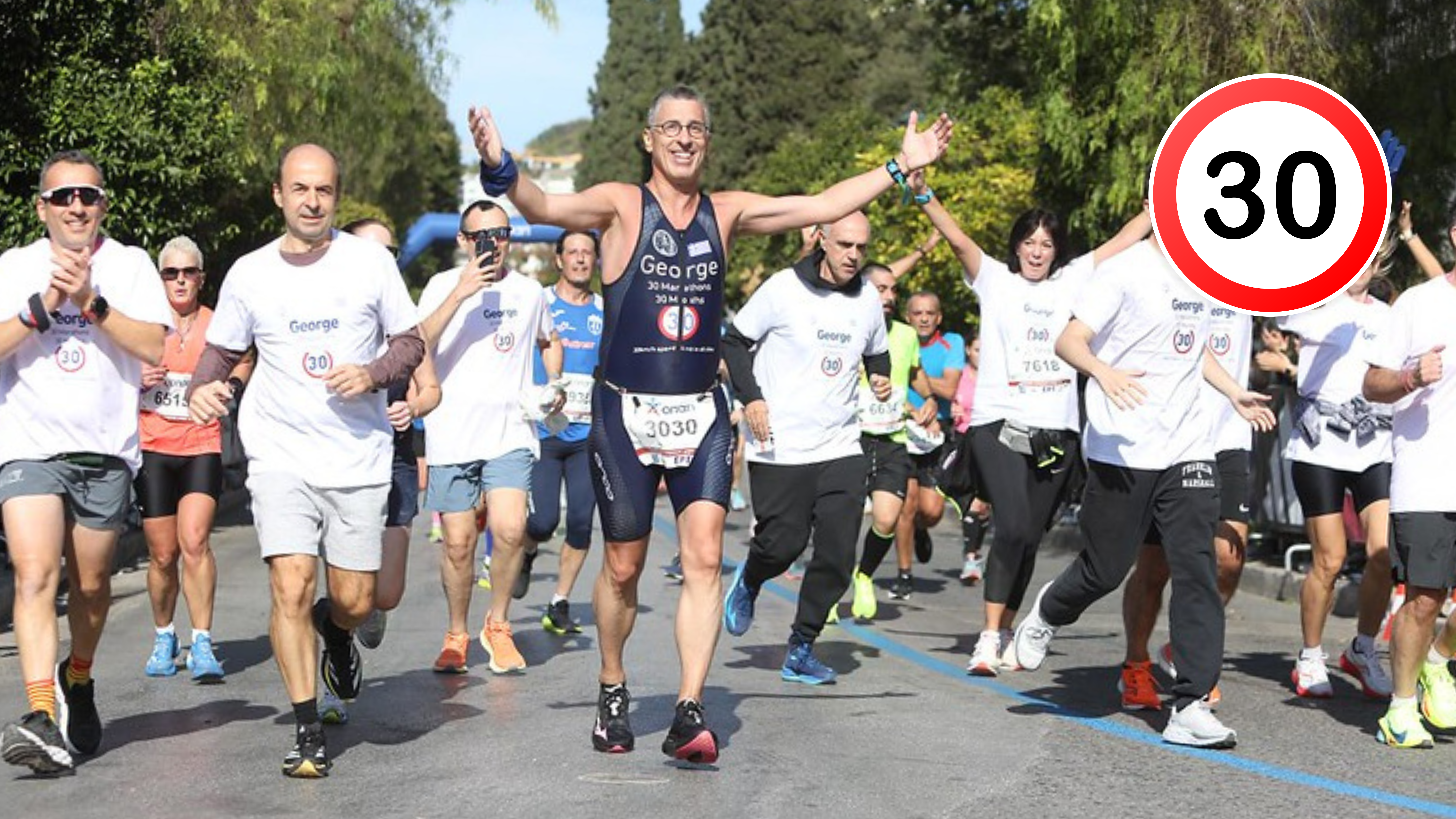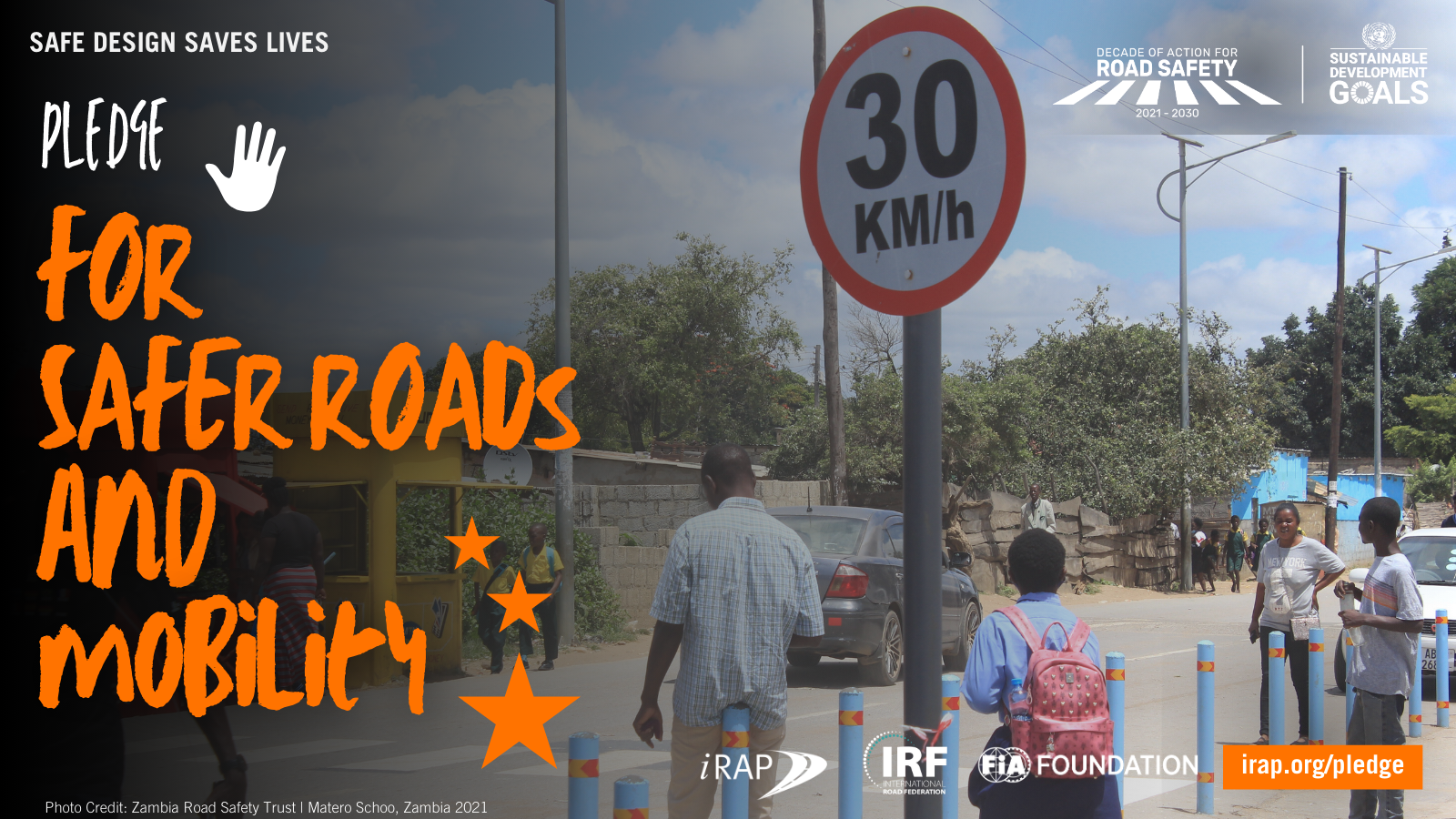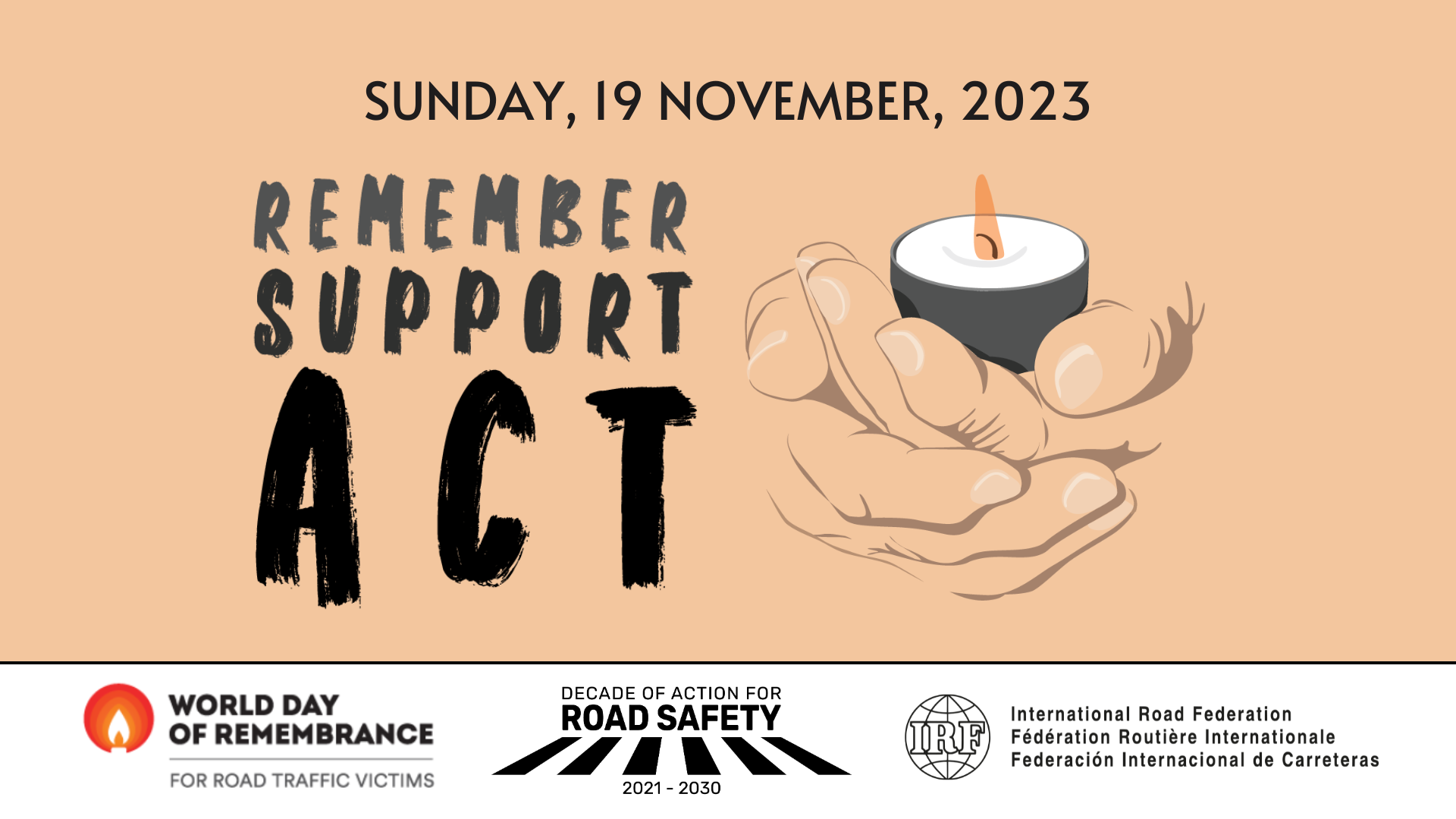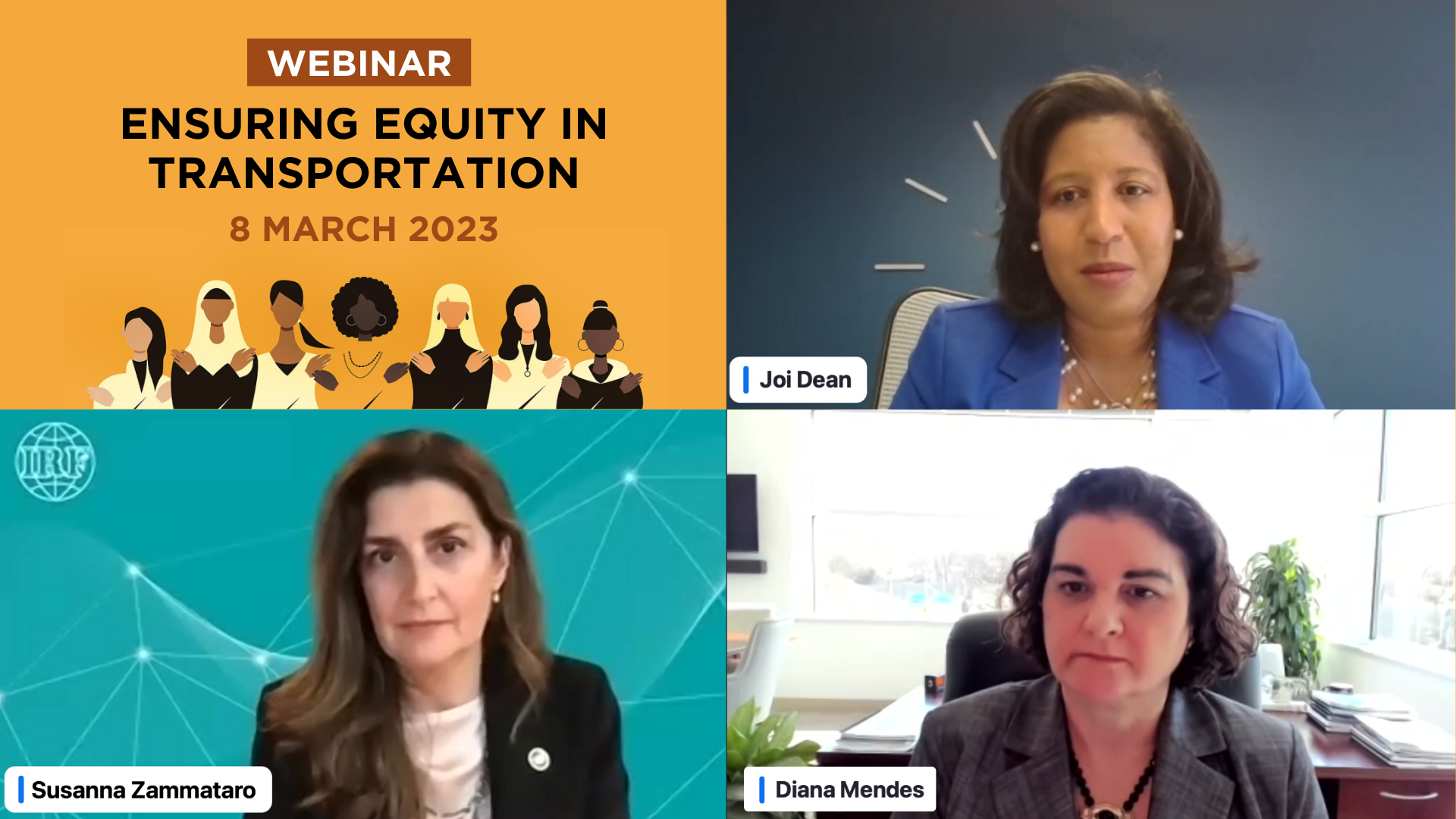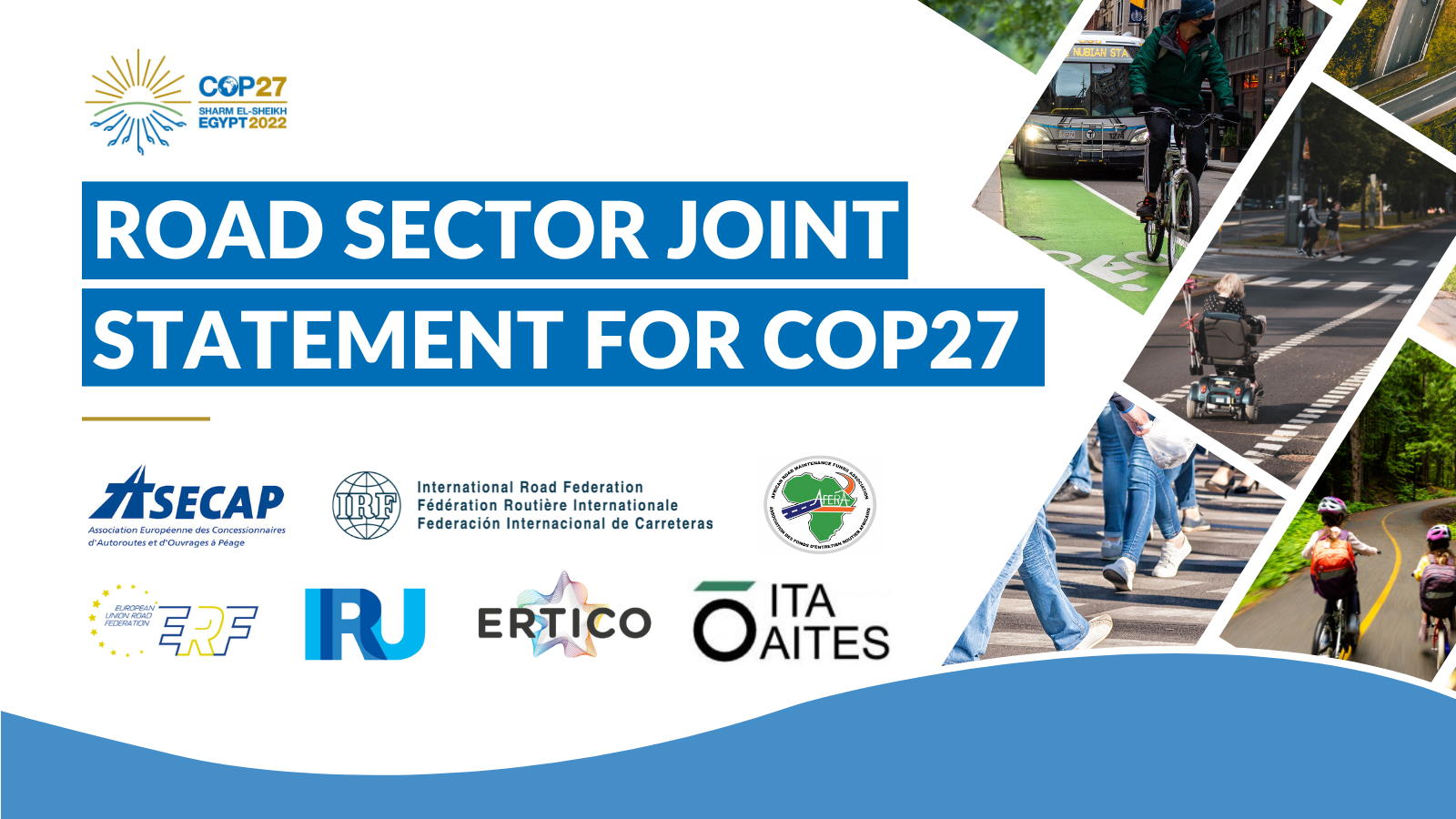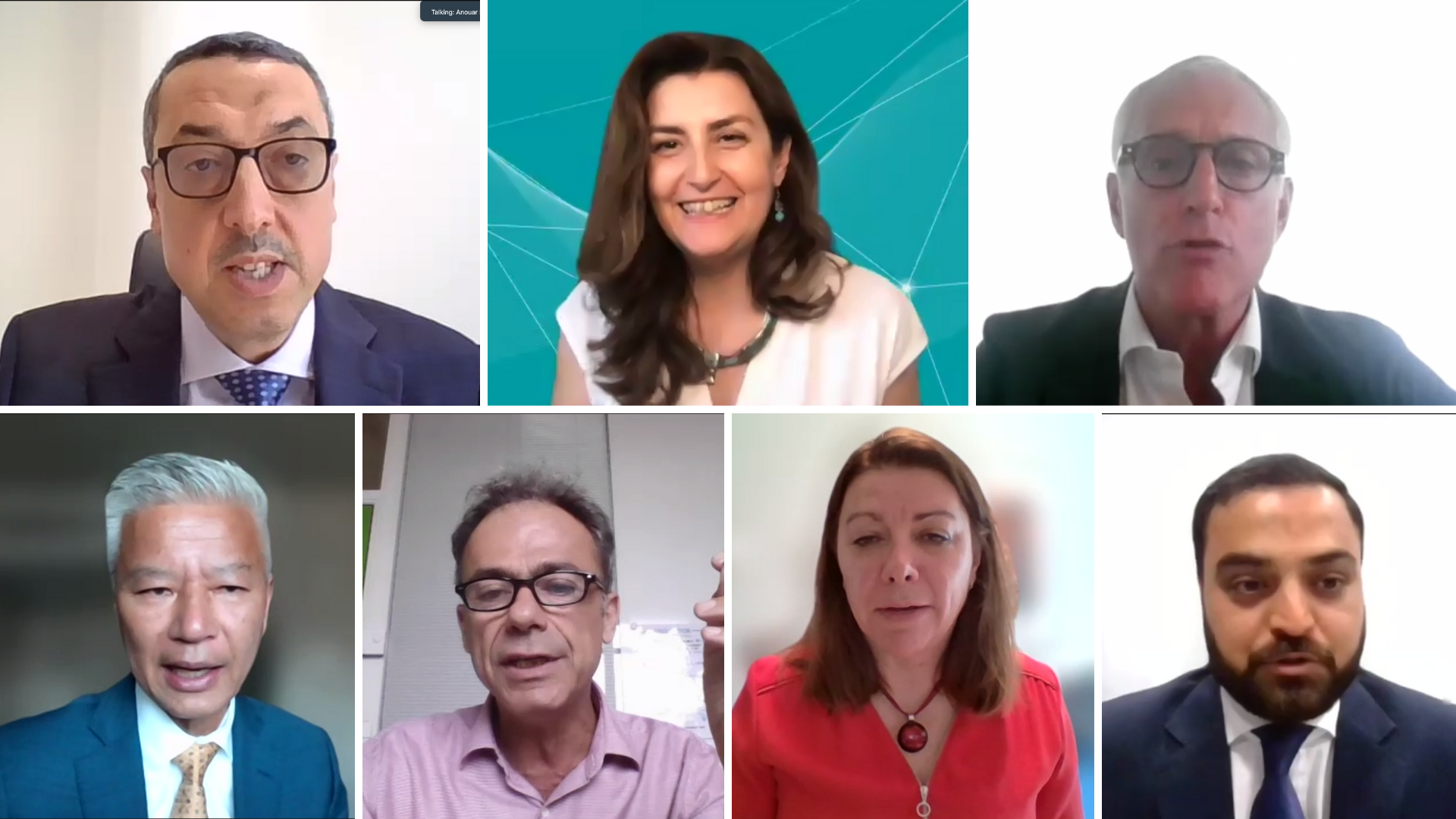IRF Joins Global Transport Leaders at the ITF 2025 Summit
From 21 to 23 May 2025, over 1,200 delegates from more than 80 countries gathered in Leipzig for the annual International Transport Forum (ITF) Summit, the world’s foremost platform for high-level discussions on transport policy. As in previous years, the International Road Federation (IRF) took an active part, contributing to critical exchanges on the resilience of global transport systems.
Building on the letter of intent signed with the ITF at the 2024 Summit, IRF Acting Director General, Gonzalo Alcaraz, met with ITF Secretary-General Young Tae Kim on the final day of this year’s event to advance the collaboration. Discussions focused on the development of a forthcoming Memorandum of Understanding (MoU), which will frame joint efforts including capacity-building programmes, technical cooperation, and data-driven initiatives aimed at strengthening road transport systems worldwide.
On Wednesday morning, the IRF co-organised its first side event during the Summit, “Transport System Resilience, Connectivity and Diversification in the Face of Climate Change and Other Global Shocks”, alongside Japan’s Ministry of Land, Infrastructure, Transport and Tourism, Life-Links, Kuehne Climate Center, Oris Materials Intelligence and the Asian Transport Observatory. Opening remarks from the IRF Acting Director General underlined that road networks face ever-greater threats from extreme weather, shifting climate patterns and geopolitical unrest.
That afternoon, the IRF convened a second session on “Effective Qualifications-Based and Gender-Responsive Procurement as a Tool to Enhance the Resilience of Transport Systems”, in collaboration with the Union for the Mediterranean and the International Federation of Consulting Engineers. Delegates examined how low- and middle-income countries, despite securing nearly one third of all climate finance, still grapple with an investment gap in transport infrastructure. The IRF contribution emphasised that Qualifications-Based Selection ensures that technical expertise, innovation and value for money prevail over short-term cost-cutting. In parallel, the session explored how procurement processes can be adapted to combat gender-based violence through responsible contracting, accountability measures and inclusive tendering practices.
The discussions in Leipzig provided a valuable platform to share practical approaches to infrastructure adaptation, digital transformation and fair procurement. Issues that remain central as we move towards COP30 in Brazil.
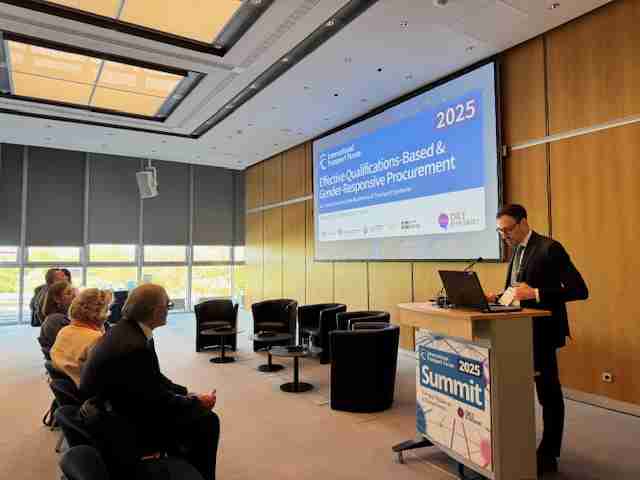
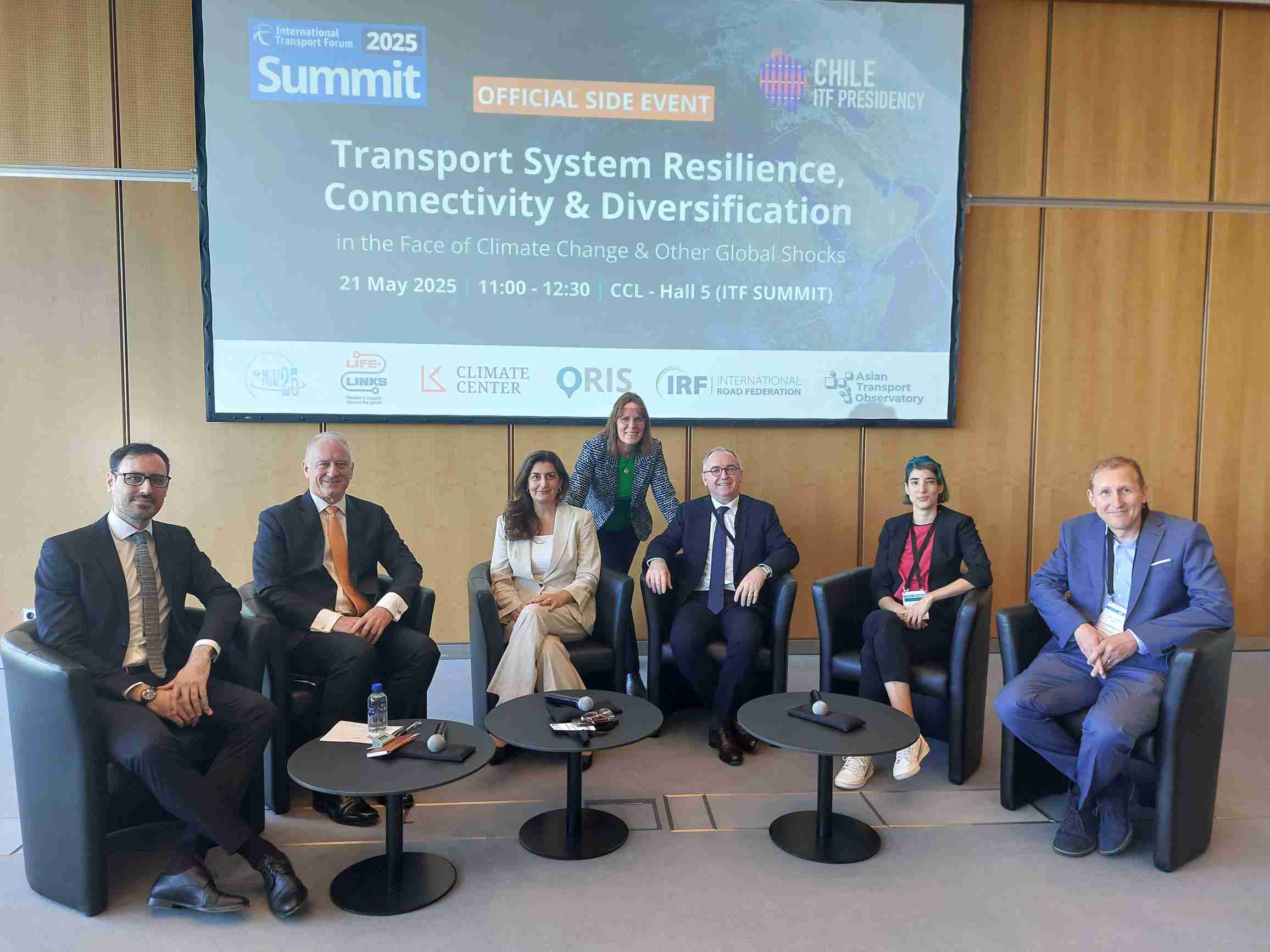
Half of Italians Believe Speeding "Is Not Dangerous", Finds 2024 Driving Styles Research by Anas, the Italian national state roads company
The research, by CSA Research - Corporate Statistics Center, consisted of interviews on a sample of 4 thousand road users and more than 3,500 direct observations of driving behavior along six different types of roads
Anas, the Italian national state roads company, has always been at the forefront of ensuring the safety of citizens along its network of highways and state roads. Through its ongoing commitment and investment in maintenance and technological innovation, the company (part of the Ferrovie dello Stato Group, the Italian railway company) can ensure greater prevention and vigilance for travelers on its infrastructure, ensuring its safety and resilience in an increasingly complex and challenging environment. However, it is equally essential to build a relationship with the users of the arterial roads through a strong act of prevention, information and road safety education, especially towards the youngest, the drivers of the future.
For this reason, for several years, Anas has been commissioning research on road users' driving styles, and this year, for the fourth time, CSA Research - Corporate Statistics Center conducted the edition with interviews on a sample of 4 thousand people and more than 3,500 direct observations on the road.
According to the research, for 51% of Italians it is not dangerous to exceed speed limits. Only 34.7% think it is useful to respect them, while 16.4% believe that an experienced driver can exceed them.
The survey was presented in November 2024 at the international conference “Road Safety: target zero fatalities” organized by Anas, PIARC Italia - World Road Association, under the patronage of the Italian Ministry of Infrastructure and Transport and in collaboration with the Global Forum for Road Traffic Safety of the United Nations and the EuroMed Transport Support Project, on the occasion of the World Day in Remembrance of Road Victims.
Among the respondents, 11.4% believe that while driving “something else can also be done”, while only 55.4% of the sample is convinced that road accidents depend on wrong behavior.
60.1% of respondents believe that the new Highway Code is helpful. Only 72.5% think alcohol and drugs are always dangerous, while 8.4% believe they are irrelevant to driving.
Behavior on cell phone use while driving improves: the research shows a 7.4% use of the cell phone compared to 9.6% in 2023 and 10.3% in 2022. The under-40s, however, worsen the figure: 9.9% use it versus 5.6% of the over-60s.
“The data that emerged from this year's Anas Research on Driving Styles,” said Anas CEO Aldo Isi, “demonstrate the need for more and more investment in road education and awareness of risks and dangers behind the wheel. In addition to a great commitment to continuing to raise users' awareness of the importance of prudent, safe and distraction-free driving, Anas is working to enhance even more the safety standards of its network in the guarantee, as always, of ordinary infrastructure maintenance but also focusing on technological innovation. Investments in planned maintenance are now increasingly significant,” stresses engineer Isi, “in the first half of 2024 they were about 780 million, 115 million more than in the same period of 2023. In detail, in the first six months of 2024 for planned maintenance €318 million was spent on major works of infrastructure (bridges and viaducts); €184 million on roadway resurfacing; €129 million on complementary works; €88 million on safety barriers; and €62 million on facilities.”
George Υannis - 30 Marathons in 30 Months to Actively Promote the Adoption of 30 km/h Speed Limit in Cities
George Yannis, Professor and Director of the Department of Transportation Planning Engineering of the School of Civil Engineering at the National Technical University of Athens (NTUA), has successfully completed on Sunday 10 November 2024 in Athens his campaign to run 30 Marathons in 30 months in order to promote the 30km/h speed limit in cities worldwide. He has finished all Marathons in under 4 hours.
City-wide 30 km/h speed limits is the since-long waited single road safety measure with such a significant driving culture change at such a low cost. Evaluation results (Implementation results and Simulation studies) from 40 different cities across Europe (including Paris, London, Brussels, and Helsinki) demonstrated that 30 km/h speed limits have led to significant reductions: 37% of road crash fatalities, 18% in emissions, 2.5dB in noise pollution and 7% in fuel consumption (on average). Such a high societal impact for such a small change in our habits.
This unique challenge of 30 Marathons, has raised mass awareness at both society and Authorities for a better quality of life in cities with calm driving for safer, healthy and green travelling for all. The global impact of this campaign is impressive with over 400,000 views and 100,000 visitors per year to the campaign's websites and social media. In addition, George Yannis has contributed with dozens of interviews on TV, radio and online media and dozens of articles in newspapers and publications in scientific journals and conferences, supported by all major International Road Safety and mobility Organizations.
George Yannis insists on a steady pace both when running Marathons and when advocating for safe traffic in cities with a 30 km/h speed limit. He will continue to actively support life-saving options that enhance sustainable urban development and safe travelling everywhere and for all.
The complete challenge is available:
Campaign Website: georgeruns30x30.com
With the active support of: NTUA, ETSC, ECTRI, POLIS, UITP, ERF, IRF, FERSI, FEHRL, ECF, WALK21 and HITE
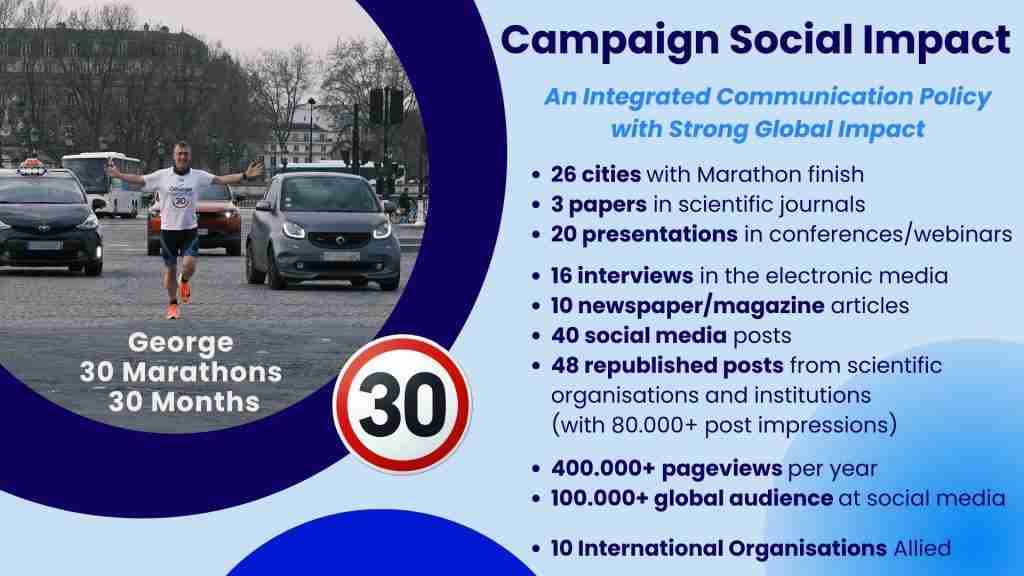
#SaferRoadsPledge Campaign Launches
The International Road Assessment Programme (iRAP), the International Road Federation (IRF) and the FIA Foundation have launched a #SaferRoadsPledge campaign calling on organisations involved in designing and financing roads to pledge their commitment to safer roads ahead of the 4th Global Ministerial Conference on Road Safety.
From 17-20 February 2025, leaders from across the world will gather at the Ministerial Conference in Morocco. They will assess progress made in implementing the Global Plan for the Decade of Action for Road Safety 2021-2030 during its initial five-year period, and generate support for the new vision of safe and sustainable mobility.
IRAP CEO Rob McInerney said, “Tragically, more than 3,200 people lose their lives on our roads every day. Road crashes are the leading cause of death for young people.
“We know road infrastructure rated 3-star or better for safety saves lives and prevents injuries, yet sadly less than half of roads assessed globally meet this standard. We have just five years to reach the UN global target of halving road deaths and injuries by 2030 and accelerated action on safer roads will be crucial.” he said.
The Global Plan for the Decade of Action for Road Safety recommends using Road Safety Audits and Star Ratings to lift the safety of roads and designs. UN Targets 3 and 4 include ensuring all new roads are built to a 3-star or better standard for all road users, and more than 75% of travel is on the equivalent of 3-star or better roads for all road users by 2030.
Road designers and financing institutions from the government and private sector are called on to commit their support for safer roads that enable more sustainable mobility. In support of the UN Road Safety Performance Targets 3 and 4, they are called on to commit to including Road Safety Audits, Inspections and Star Rating Assessments for new and improved road designs, and/or to undertaking crash-risk mapping and proactive safety assessments and inspections that target investment in safer infrastructure and safer speeds to meet at least a standard of 3-stars or better for all road users by 2030.
Evidence shows that lifting the Star Rating of a road by a singlestar can halve crash costs, and that safer 3-star or better roads for all will save lives and are cost effective. The independent study by Johns Hopkins University has found that iRAP partners worldwide have saved an estimated 700,000 fatalities and serious injuries through investment in safer road projects from 2016 to the end of 2024 using the iRAP tools.
Pledges made during the campaign will be presented to global leaders during the Ministerial Conference to support advocacy for, and investment in safer roads at the highest level.
They will also be presented at the IRF World Congress 2024 in Istanbul from 14-18 October, where safe roads and designs will be an important focus.
During the congress, a High-level Roundtable: Shaping the Future of Road Designs for Safe and Sustainable Mobility will convene leaders in road infrastructure development to tackle the challenge of closing the road safety gap by 2030. Participants will share best practices, along with roadblocks and opportunities to elevate safety in road design globally, seeking to forge consensus and accelerate progress towards the Ministerial Conference.
A special iRAP Practical Skills training will build the capacity of road designers in Audits and use of the enhanced Star Rating for Designs web app developed with support from the World Bank Global Road Safety Facility.
IRF Director General Susanna Zammataro said, “How we design and build/upgrade infrastructure can truly make the difference and help save precious lives. Safe road design - together with policy and capacity building to support it - is crucial to achieving safe and sustainable mobility for all. IRF encourages all design and financing agencies to join and support the pledge.”
FIA Foundation Executive Director Saul Billingsley said, “Hundreds of thousands of deaths and serious injuries are being prevented through safe road design, and upgrades. Now we need to see greater and uncompromising commitment from design agencies and financing institutions to deliver safer road infrastructure that meets the targets of the Road Safety Decade and the Sustainable Development Goals.”
Organisations and individuals can pledge at irap.org/pledge.
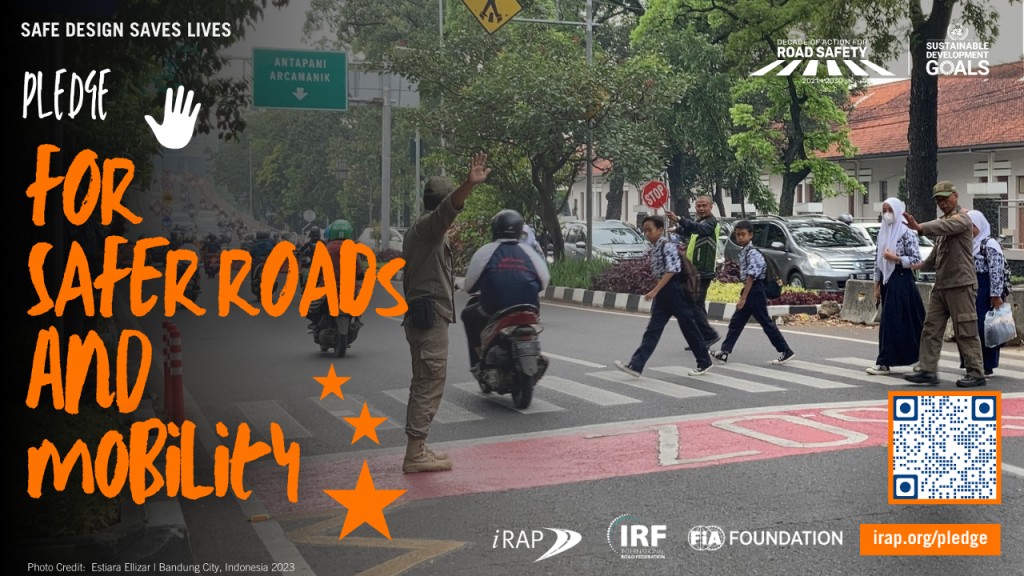
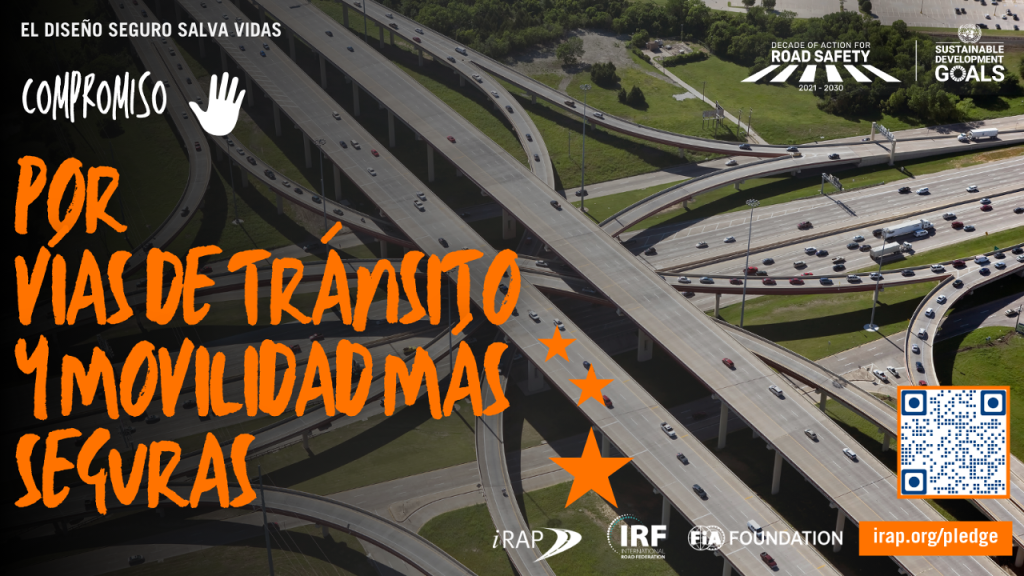
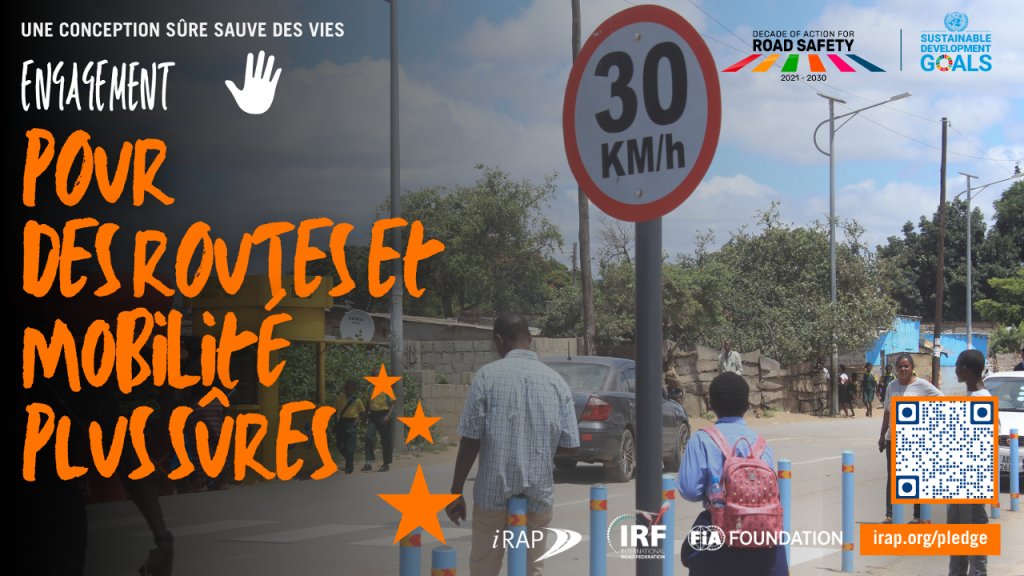
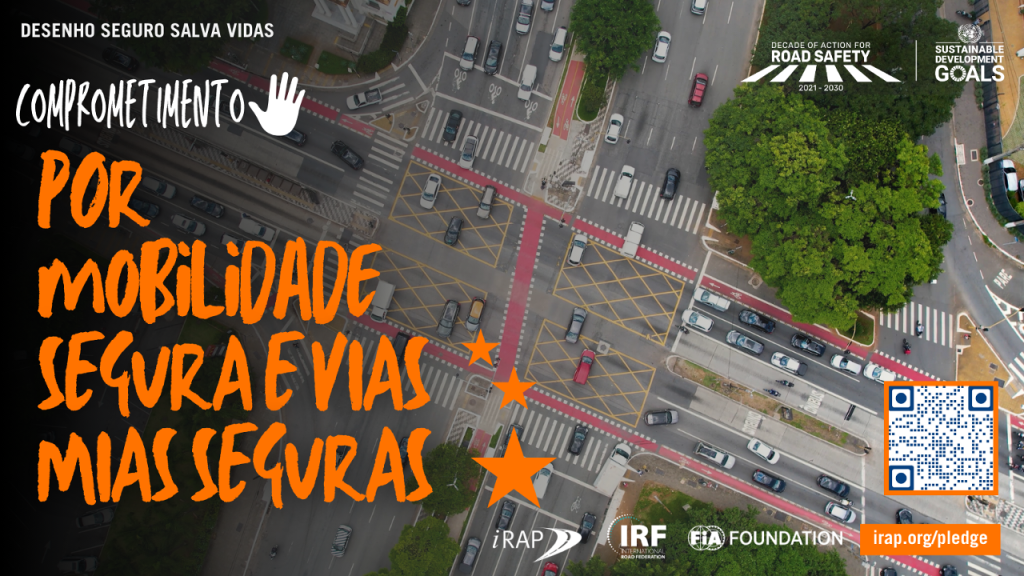
ABOUT IRF
The International Road Federation (IRF) is a global, independent, not-for-profit organisation with headquarters in Geneva, Switzerland. Active since 1948, IRF is a membership-based organisation, representing leading corporate and institutional players drawn from the road and mobility sectors worldwide. Its mission is to promote the development of roads and road networks that enable access and sustainable mobility for all. Its approach is centred on key strategic components of knowledge transfer & information sharing, connecting people, businesses, and organisations, and working on policy & advocacy.
ABOUT iRAP
The International Road Assessment Programme (iRAP) is a registered charity with the vision for a world free of high-risk roads. The charity is active in over 125 countries and works with governments, development banks, mobility clubs, industry, research organisations and road safety NGOs to provide them with the free methodology, tools, training, and support to make their roads safer. iRAP’s Star Rating Methodology provides a simple and objective measure of the level of safety which is ‘built-in’ to the road for vehicle occupants, motorcyclists, bicyclists, and pedestrians. A 1-star road is the least safe and a 5-star road is the safest. iRAP’s Safety Insights Explorer is a valuable online resource unlocking the potential of the world’s largest road infrastructure safety database to explore the human and financial impact of road injury, how safe the world’s roads are, and provide the Business Case for Safer Roads. As at June 2024, 1.9 million kilometres of Star Ratings of roads and designs (including 1,638 schools) and 1.8 million kilometres of Crash Risk Mapping and have been performed by iRAP partners in 128 countries, informing the safety of 103 billion USD of road infrastructure investments. 73,000 people have been trained. iRAP is the umbrella programme for regional road assessment programmes including IndiaRAP, BrazilRAP, BrazilRAP Sao Paulo, AusRAP, ChinaRAP, usRAP, KiwiRAP, South Africa RAP, ThaiRAP, TanRAP, KSARAP and MyRAP. The charity’s tools and support are made freely available thanks to the support of major donor the FIA Foundation and current supporting donors Aleatica Foundation, 3M and Prudence Foundation.

ABOUT FIA FOUNDATION
The FIA Foundation is an independent UK registered charity which supports an international programme of activities promoting safe roads, clean air, and climate action.
FIA Foundation is the funder of iRAP’s core work.
Celebrating the First World Sustainable Transport Day
Sustainable transport goes beyond moving from point A to B. It aligns with environmental consciousness and community well-being. Recognising its multifaceted importance – providing jobs, promoting connectivity, ensuring equity, bolstering resilience, facilitating trade, and driving economic growth – the UN General Assembly (May 2023) established 26 November as the World Sustainable Transport Day.
The International Road Federation (IRF) marked this important celebration by hosting and participating to a number of events.
IRF featured also among the distinguished speakers of a high-level event hosted by ANAS and PIARC Italia in Rome on 21 November. Focusing on road safety, the event was opened by the Italian Minister of Transport. In addressing the audience, IRF’s DG, Susanna Zammataro stated “I am happy to see interventions on the various components of the safe system approach in the programme of this event. Too often when traveling around the world I still witness heated debates about what is more important: education? enforcement? infrastructure? The truth is that science and research show us that each of these elements is fundamental if we really want to succeed in overcoming this challenge”.
The week saw on 24th November, IRF's Director General, Susanna Zammataro, participate in a high-level panel hosted in Geneva by UNECE discussing action to enhance global transportation safety together with leaders from the sector including Régis Farret (Vice Chair, Inland Transport Committee, UNECE), Yves van der Straaten (Secretary General at OICA), Jean Todt (United Nations Special Envoy for Road Safety), Nneka Henry (Head of the UNRSF – UN Road Safety Fund) and Nhan Tran (Head of Safety and Mobility at the World Health Organization).
"Properly designed road infrastructure is the backbone of a safe and efficient transportation system” said Susanna Zammataro. She stressed the pivotal role of road safety audits and that of well-trained, certified road safety auditors. “The significance of these audits lies not only in their ability to prevent mishaps but also in fostering a culture of continuous improvement in our road systems” she added.
Learn more about World Sustainable Transport Day here: http://www.worldsustainabletransportday.org/
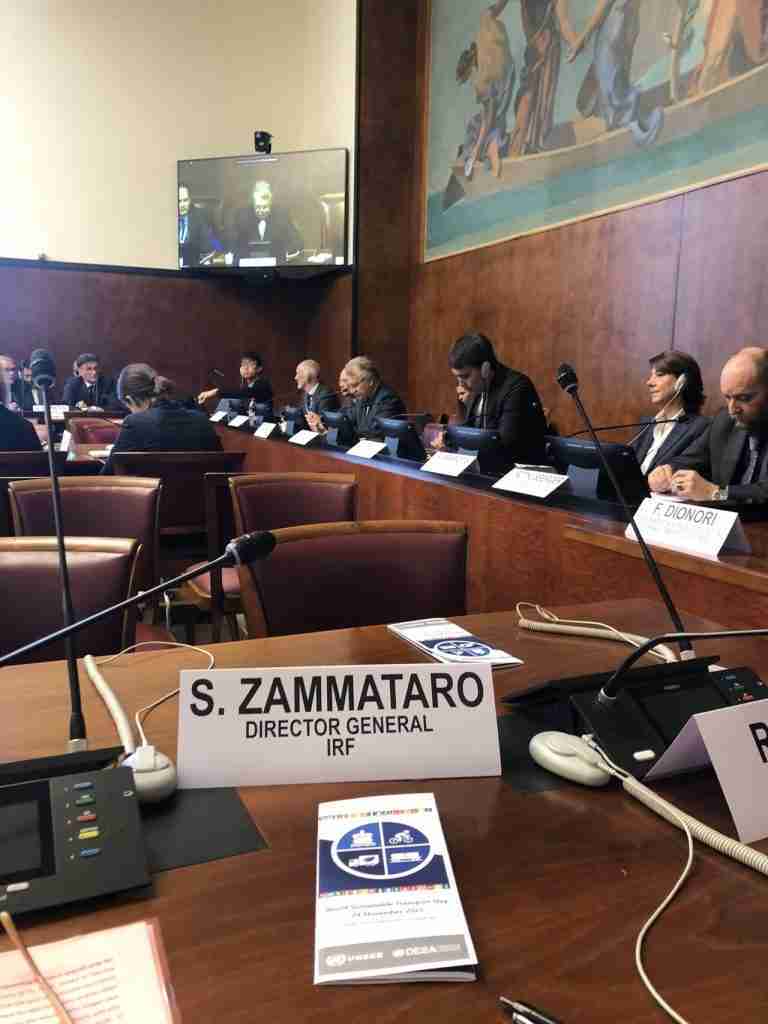

Commemorating World Day of Remembrance for Road Traffic Victims 2023
Every year, on the third Sunday of November, the world comes together to remember the millions of lives lost in road traffic crashes. The World Day of Remembrance for Road Traffic Victims (WDoR) was started by Road Peace in 1993. In 2005, the United Nations endorsed it as a global day to be observed every third Sunday in November each year in recognition of road traffic victims and their families' loss and suffering.
Road traffic crashes are a major global public health issue. According to the World Health Organization (WHO), approximately 1.35 million people die each year in road traffic crashes, and an additional 20-50 million people suffer non-fatal injuries, often resulting in long-term disability. These statistics reveal a startling truth – road traffic crashes are a leading cause of death and disability worldwide.
The World Day of Remembrance provides a global platform to:
- Remember. Honouring the memory of those who have lost their lives in road traffic crashes. It's a day to reflect on the human toll of these incidents and to offer support to grieving families.
- Support. Raising Awareness about road safety and the importance of preventing traffic crashes. Promoting safe behaviours, responsible driving, and adequate road infrastructure are key components of this effort.
- Act. Advocating for policy changes and improvements in road safety. Governments, NGOs, and individuals alike use this day to call for stricter enforcement of traffic laws and the development of safer road systems.
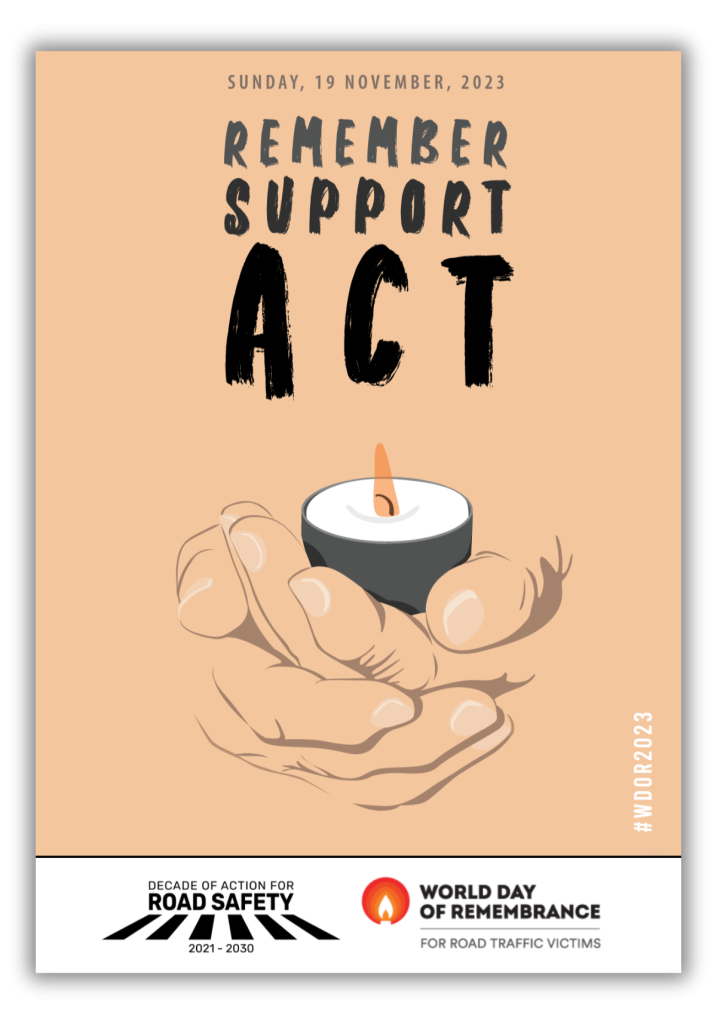
On 17 November at 14:00 CET, you are welcome to join the WHO-hosted social media live chat on its Facebook, X, LinkedIn and YouTube channels. The live chat will feature Etienne Krug from WHO, Afef Ben Ghenia, Founder of the Les Ambassadeurs de la Sécurité Routière in Tunisia; Daniel Langenkamp, Public Affairs Officer, US Department of State; and Celia Rodriguez, YOURS youth leader and Founder of the Asociación de Prevención y Atención de la Seguridad Integral en el Tránsito in Guatemala. More info on World Day of Remembrance 2023 (who.int)
A wealth of materials is also available in many languages to mark the World Day of Remembrance, including videos, posters and the candle logo:
Show your support by posting and reposting on social media about the World Day of Remembrance using the hashtags #RoadSafety #RememberSupportAct and #StreetsforLife.
Moving Towards Equity: Women Experts Discuss Gender-Inclusive Transportation Planning
In celebration of International Women’s Day, IBTTA’s Women in Tolling Council hosted a discussion on 8 March 2023 on the impact of transportation on women across the world. More specifically, the webinar focused on the investments and policies directed at providing and ensuring equity in transportation for women, and on reviewing the current state of equity in this area for women both in the US and internationally.
The panel was composed of women experts in the fields of transportation and equity, including IRF Director General, Susanna Zammataro, Diana Mendes (AICP Corporate President and Director of Equity in Transportation) and moderator Joi Dean (Executive Director, Richmond Metropolitan Transportation Authority).
Ms Zammataro stressed the role that data plays in creating equitable transportation solutions and its importance in order to get out of stereotyped and generic conversations. Data helps us identify the specific challenges that women face to access transport (including their safety) and their different mobility patterns. It helps identify trends and patterns, and evaluate the effectiveness of potential solutions. Without data, policies and solutions can be based on assumptions, personal opinions, or anecdotal evidence, which can lead to ineffective outcomes.
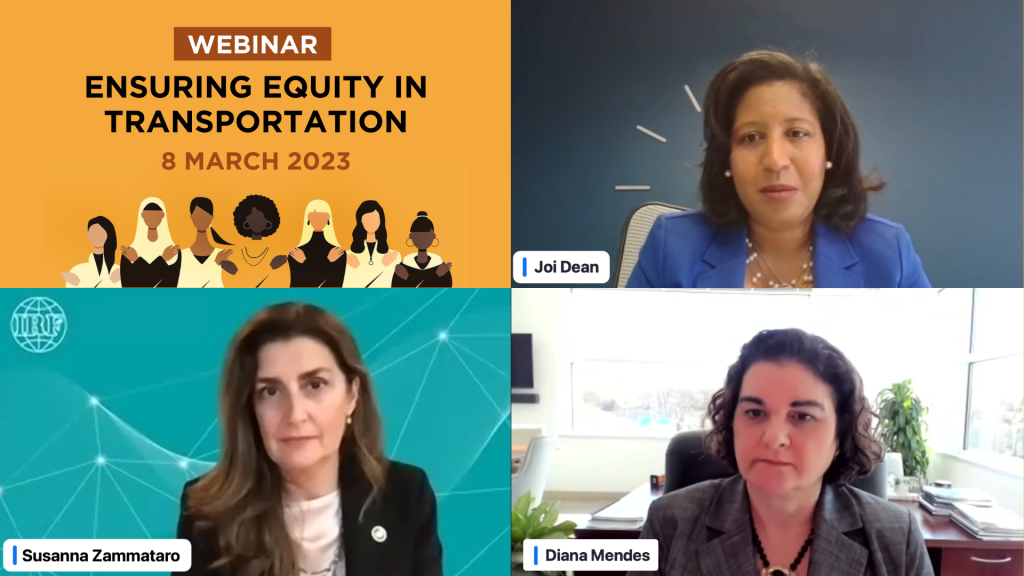
The panel discussed the different transportation planning, policy and management approaches that are currently used to address equity, and their barriers. It addressed the challenges that the implementation of these policies face nowadays, such as the lack of understanding and cultural bias; the slow pace of change and the lack of clear guidance. To this effect, it was stressed that it’s critical to share knowledge around positive examples and various tools that do exist and can help. Reference was made to the ITF Gender Analysis Toolkit for Transport, a hands-on, easy-to-use method for incorporating a gender-inclusive perspective into transport projects, plans and policies.
Ms Zammataro also announced the imminent release of a new piece of work from the Sustainable Mobility for All (SuM4All) working group on gender titled “Working Women in Transport: A Toolkit for Change”. The report will be launched end of May in Leipzig, in conjunction with the ITF Annual Summit.
Recording of the webinar is accessible here: https://www.ibtta.org/content/ensuring-equity-transportation.
World Day of Remembrance for Road Traffic Victims 2022
The World Day of Remembrance for Road Traffic Victims was started by RoadPeace in 1993. In 2005, the United Nations endorsed it as a global day to be observed every third Sunday in November each year, as the “appropriate acknowledgement for victims of road traffic injuries and their families”. Since then, victims’ and other civil society organisations, including the International Road Federation (IRF), national and local governments, and the international road safety community have been marking this day in countries worldwide.
The World Day of Remembrance provides a global platform to remember those killed or seriously injured, draw attention to the need for a more appropriate and just post-crash response for road traffic victims and their families, and call for accelerated action on road safety to save lives.
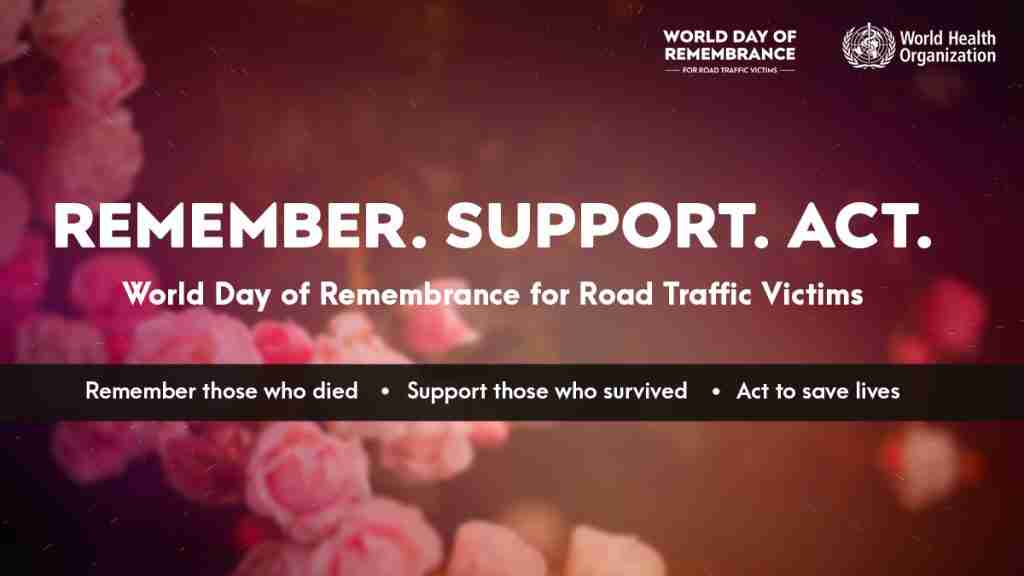
In recent years, WHO has hosted - in coordination with the United Nations Road Safety Collaboration (UNRSC) a virtual Global Commemoration for the World Day of Remembrance under the theme “Remember. Support. Act”. Held on 18 November 2022, this year’s edition featured statements from the WHO Director-General Dr Tedros and other dignitaries from the UN and civil society, testimonials from bereaved mothers from Ireland and Nigeria, and an artistic intervention in two parts. A recording of the event is available here, in case you missed it.
Together with the other members of UNRSC, IRF joined the movement and supported the World day of Remembrance to honour road traffic victims and their bereaved families.
Remember those who died. Support those who survived. Act to save lives.
Leading Organisations in the Road Sector Release a Joint Statement for COP27
The 27th Conference of the Parties of the UNFCCC (COP 27) was hosted this year on 6-18 November in Sharm El-Sheik, Egypt. The objective was to accelerate global climate action through emissions’ reduction, scaled-up adaptation efforts, and enhanced flows of appropriate finance able to ensure a ‘just transition’.
Achieving the UN Sustainable Development Goals depends on efficient multi-modal transport systems and services where roads play a central role. Effective road transport, road networks, tunnels and bridges, and the associated services are thus essential to ensure the sustainable mobility of people and goods and to ensure we leave no one behind.
In this context, the International Road Federation together with the European Association of Tollway Operators (ASECAP), ERTICO, the European Union Road Federation (ERF) the International Road Transport Union (IRU), the African Road Maintenance Funds Administration (ARMFA), and the International Tunnelling and Underground Space Association (ITA-AITES), leading organisations in the road sector, published a joint statement to restate the sector’s firm commitment to effectively reduce CO2 emissions to net-zero by 2050 in line with the Paris Agreement.
“We need to embrace system thinking and decarbonise without compromising the services we provide and without undermining a network (roads, tunnels and bridges) that serves all other transport modes, including active mobility and mass transport” commented IRF President, Anouar Benazzouz.
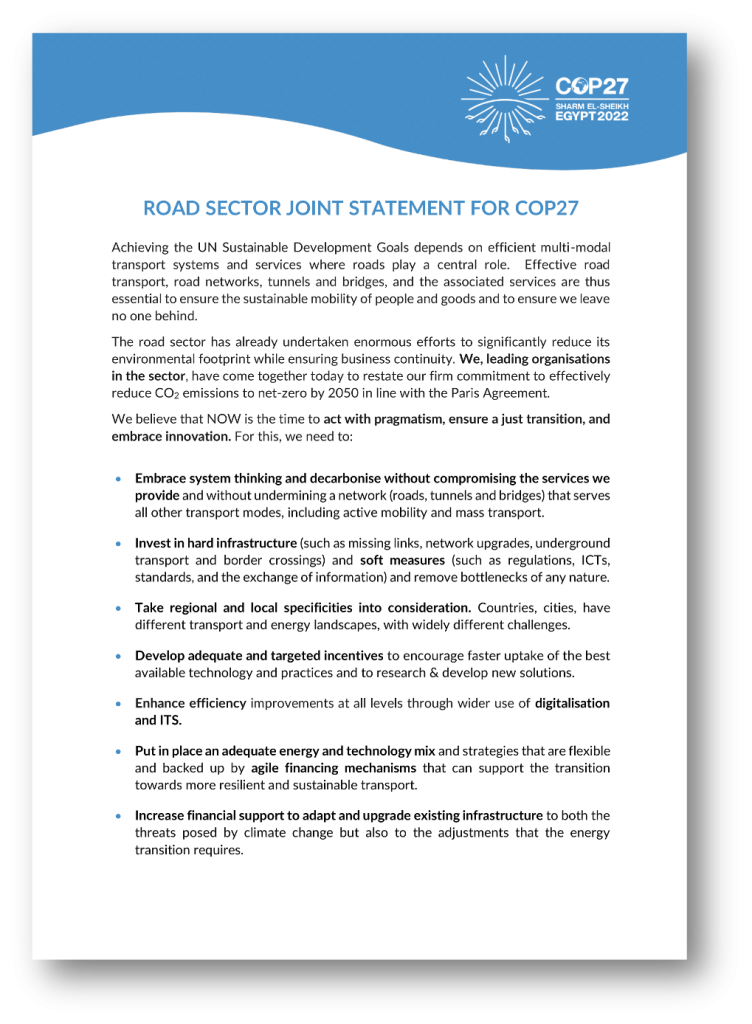
Private Sector Shows Leadership on Road Safety Action at the UN High-Level Meeting on Global Road Safety
The International Road Federation (IRF) has convened key industry leaders to discuss “Action for Road Safety: Private Sector Leadership” on the occasion of the UN High-Level Meeting on Global Road Safety being hosted in New York on 30 June and 01 July.
The new Global Plan for the Decade of Action clearly spells out that saving millions of lives and avoiding an estimated 50 million serious injuries per year will require significant commitment and greater action from everyone, including that of the private sector. For the latter, road safety is no longer just a risk that can severely impact business, but a value and a key pillar of a vision that sees companies fully engaged with their employees and the communities in which they operate.
“We have a golden opportunity to inspire a strong and renewed worldwide commitment to safer roads for all” said IRF President, M. Anouar Benazzouz at the opening of the event which gathered for the panel discussion senior management representatives from 3M, Holcim, Michelin, Unilever.
Speaking at the opening, Jacques Emmanuel Saulnier, General Manager of TotalEnergies Foundation presented the Private Sector Road Safety Coalitions initiative which is being supported by the Foundation and has now been deployed in Tanzania, Morocco, and Pakistan and about to be launched also in Senegal, India, Togo. “This initiative is rooted in the belief that road crashes are largely preventable and road safety is a shared responsibility” he said. Coordinated by IRF, the aim of the initiative is to federate private sector stakeholders to work together, in close collaboration with international institutions, NGOs, and local authorities to improve road safety via hands-on, impact-oriented, and scalable activities.
Often solicited only for financial contributions, the private sector has a lot more to offer. There are several areas of opportunity where companies can make meaningful contributions to road safety outcomes for their employees, contractors, and communities at large. Through innovation, thought leadership, early adoption, and development of technology, marketing, and training, companies are uniquely placed to raise road safety standards and behaviours.
“The private sector is good at changing behaviour and raising codes of practice and can play a role in making road safety a priority” said Dan Chen, President of 3M Transportation Safety Division. “If we uniformly implemented safety criteria in our procurement, our own fleets, our freight and supplier base, it could have a significant impact” he stated.
“We divided by 7 the number of deaths on our roads, in 7 years, this was done on 150,000 trucks, in 60 countries, doing 1.8B Km” echoed Holcim’s Chief Sustainability & Innovation Officer, Magali Anderson. “We did it by using two strong levers: training the drivers and monitoring their driving skills with some IVMS inside their vehicles. This allows real-time coaching. This system also collects a lot of data on our driving routes, which are used to optimise our logistics, and is helping us reach our scope 3 target of reducing by 24% the co2/km/ton transported. Transportation represents 15% of our total scope 3” she added.
“Safe, reliable roads and vehicles also mean satisfied customers and mentally and physically healthy employees” said Salik Muhammad, Road Safety Manager at Unilever. A certified trainer himself, Mr Muhammad outlined how capacity building and drivers’ training is one of the key priorities identified in Pakistan by the road safety private-sector coalition. The country does not have a national driver licensing scheme, and so technology and training are allowing the company to monitor but also engage differently with the drivers.
Nicolas Beaumont, Senior VP Sustainable Development & Mobility at Michelin spoke on the company’s engagement towards youth and briefly introduced the VIA Road Safety Education Programme, developed jointly by the Michelin Corporate Foundation and the TotalEnergies Foundation. The programme has already reached 200’000 students and more than 1’000 schools around the world. 3M is also working with others to improve safety around schools. Through its School Zone safety initiative, the company has committed to improving 100 school zones globally by 2024.
“We are asking the governments’ delegations to prioritise the life and well-being of people over everything” said Salik Muhammad in his closing remarks. “We have Race to Zero for CO2. We have Vision Zero for road safety. Both are important. It’s not either or” echoed Nicolas Beaumont. A sentiment shared by Magali Anderson who stressed how we can address multi-dimension issues with one single step. She brought to the stage the example of the Holcim’s Women on Wheels Programme, which is contributing to road safety and the global shortage of truck drivers by encouraging not only companies to hire more female drivers, but also by giving to those women the confidence they need to get behind the wheel.
“We need to create a safety ecosystem with regulators, government agencies, banks, and technology providers to that ecosystem. With the right business model, then it becomes self-sustaining” concluded Dan Chen.
A recording of the event animated by IRF Director-General, Susanna Zammataro is available on the event page.
For more information, please contact the International Road Federation at info@irfnet.ch.
